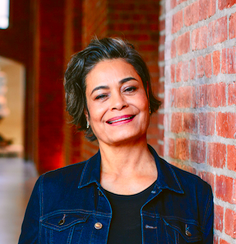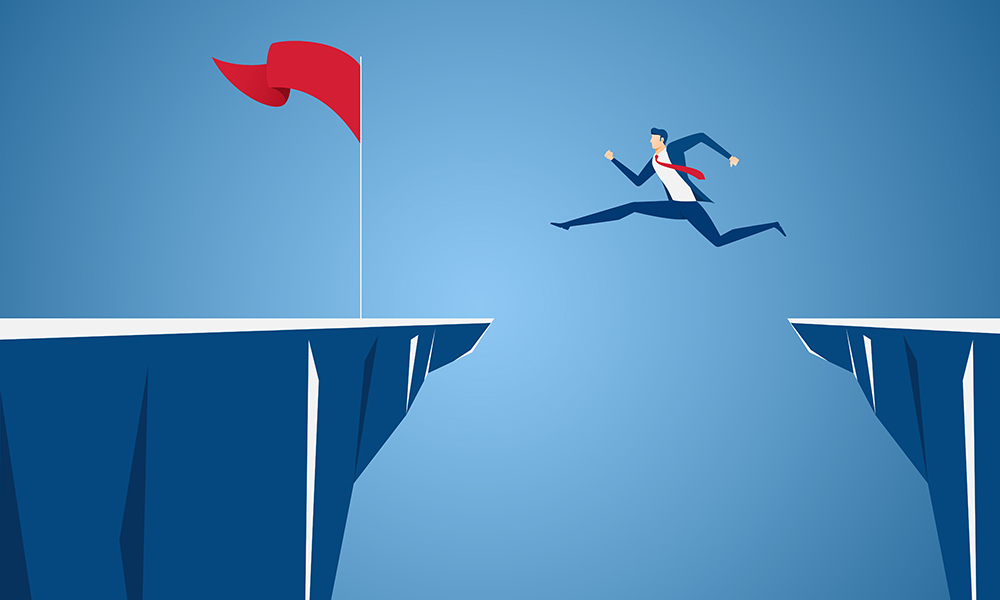Uncertainty is an unsung hero. It’s one thing we all share in different degrees. As a culture we don’t cherish uncertainty. We’re a culture that markets to fear about uncertainty.
What if uncertainty was an adventure, not something to fear?
As children, we’re interested in everything, especially an adventure. Then along the way we discard the drive to investigate and explore. We get single-tracked as adults. We often focus on one thread, one family, one career, one community rather than expanding into a web of possibility.

Author
Deborah Jiang-Stein
When I learned that the flood of adrenaline that rushes in excitement is the same as fear, that helped me better face uncertainty and fears.
My connection to prisons, and to uncertainty, is personal and carved deep into my DNA. After a journey through self-doubt and my own self-destructive lifestyle, I’ve accepted uncertainty as a given companion. What is certain in life anyway?
These days I take a new approach. What if, instead of fear about the uncertain, fear of standing on the edge of the unknown, we said to ourselves, “Hey, I have no idea what’s over the edge and beyond this moment of the unknown, but why not explore?"
Out the other side
Once I learned to grab uncertainty as an adventure and ease the fear, I found out that the shelf life of new possibility is forever.
It’s the practice of uncertainty as an art — and not something to run from — that pulled me out the other side from my own downward spiral of drugs, violence, crime and self-destruction into finding purpose and hope, and now bringing this into prisons around the country.
When we wander through the world with eyes open to uncertainty as a beautiful landscape to explore as an adventure rather than fixed to fear of the uncertain, everything changes.
Last year I spoke in a prison in West Virginia and used myself as an example to show how telling our stories can help others. It was an example of taking a risk to be vulnerable even when we feel uncertain how other people will react.
After I spoke, during the Q&A time, a woman in the audience said she wanted to take the same risk, that she felt inspired to do what I did and was going back to her unit to tell her story to the other women. She was probably in her late 40s and appeared kind of shy. It took a lot of courage for her to speak up in a gym full of 200-plus women.
It’s a good example of someone already in a vulnerable and uncertain position — incarcerated — willing to take a risk and be even more vulnerable. She was brave in the face of uncertainty and I hope she inspired courage for other women in the audience.
One of my mottos these days is: When the going gets rough, turn to curiosity and wonder. Once I began to practice uncertainty, my life took a sharp turn upward.
I began to live with more purpose and greater contentment.
I began to give back to the community, instead of taking from others all the time.
I think curiosity is the cure to fearing uncertainty. Give yourself an excuse to get curious. Five keys that work for me are:
- Feed your mind for 30 minutes a day — something, anything.
- Do something physical.
- Find a mission larger than yourself. Find meaning beyond yourself.
- Find a role model.
- There's always someone worse off than you are. Help someone out who's worse off. “It's about we, not me.”
- Take risks, try new things, step outside your comfort zone.
Because of uncertainty, everything is possible. Uncertainty is what opens the door for innovation, for possibility, for hope.
Deborah Jiang-Stein, author of the memoir, “Prison Baby” and honored by L’Oréal Paris as one of their 2017 Women of Worth, is a founder of the unPrison Project, a nonprofit working to empower and inspire incarcerated women and girls with tools for life skills, mentoring and hope. Born to a mother who was addicted to heroin and incarcerated, Deborah spent the first year of her life in prison before placement in the foster care system and later adoption.
